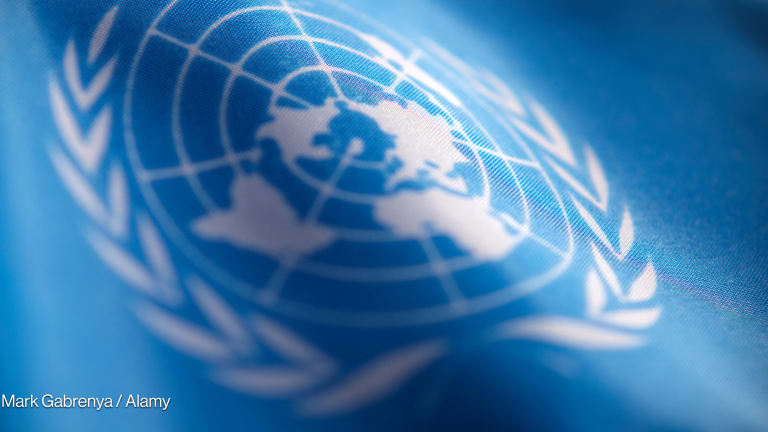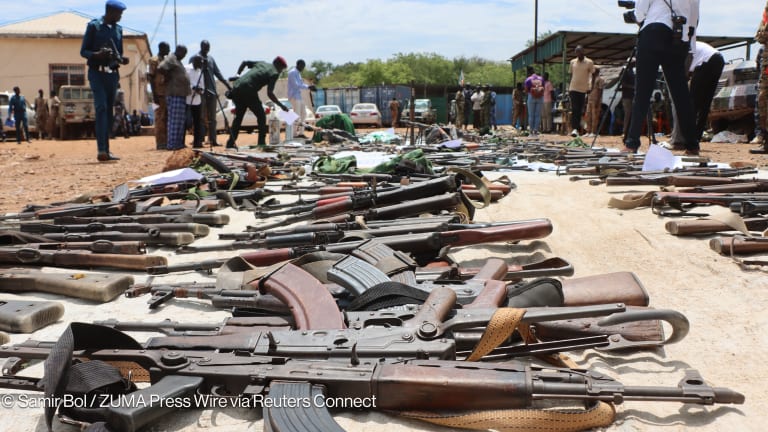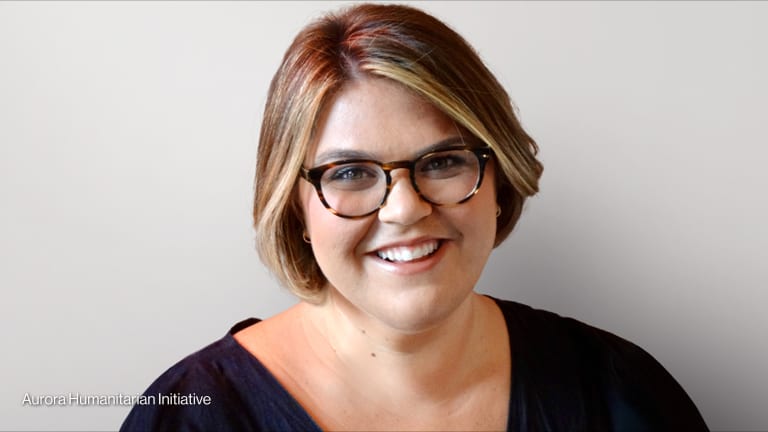
DAVOS, Switzerland — The head of the United Nations humanitarian agency has called for “enhanced dialogue” between donors and aid groups to ensure that counterterrorism measures do not become “obstacles” to humanitarian relief.
“It’s not in anyone’s interest for agencies to be so constrained that they are unable to operate.”
— Mark Lowcock, under-secretary-general for humanitarian affairs, OCHAMark Lowcock, the head of the U.N. Office for the Coordination of Humanitarian Affairs, warned that efforts by donors to protect against fraud, corruption, and aid money being siphoned off by terrorist groups could be constraining humanitarian actors in some countries.
Speaking to Devex on the sidelines of the World Economic Forum in Davos, Switzerland, last month, Lowcock, who was previously the most senior civil servant at the United Kingdom Department for International Development, said donors and aid agencies need to find more effective ways of “navigating the risk” related to anti-money laundering and terror financing in countries such as Syria.
He also said more funding needs to be directed to less well-publicized humanitarian emergencies
His comments come as the global humanitarian system struggles to respond to the more than 134 million people across the world in need of humanitarian assistance and protection due to conflict and natural disasters. Conflicts are also becoming increasingly protracted and complex, involving state and nonstate groups.
The conversation has been edited for length and clarity.
Considering there are now so many competing priorities between different, enduring conflicts, how is OCHA thinking about the best ways of drawing attention to all of them?
We have appeals in about 30 countries at the moment and some are better funded than others. Generally speaking, the crises with a high degree of global political interest, like Syria and Yemen, are better funded than those that are not in the headlines as much.
One of the ways we try to deal with that is through the use of the Central Emergency Response Fund, which OCHA manages. Last year, we raised a record $550 million for CERF. We are trying to put more of that money into the underfunded crises and I’m about to finalize the largest ever allocation from CERF, probably $125 million, to about a dozen of the least-funded crises we are dealing with around world.
But while CERF money alone won’t dramatically deal with the funding problem, it does draw attention to the underfunded crises and hopefully enables the donors to just think … [that] they need to do a bit more in these places.
What is the role of OCHA in today’s conflicts where wars are often fought between states and non-state groups, as opposed to between states?
One of OCHA’s big drives is around access, negotiation, and deconfliction. In Yemen, we run a system under which we tell the [Saudi-led] coalition ... where all the convoys and people are going every day ... so they don’t bomb those areas. So, creating enough access and space for aid agencies in these conflict situations is core business for OCHA.
This year, we are significantly strengthening our civil military capability in the field, hiring lots of extra people who can do that interface between military and civilian authorities and that does involve dealing both with states and with nonstate groups. Of course, others do this work as well, like the International Committee of the Red Cross … and so we collaborate and coordinate with them.
What are some of the challenges OCHA faces in negotiating access for NGOs and how are you addressing them?
I have some concerns about counterterrorism legislation [because it] risks inadvertently presenting obstacles to humanitarian action all over the world. Obviously, having legislation to prevent terrorist groups getting access to finance is something you need to do, but the issue is having the unintended consequence of constraining the ability of legitimate organizations, particularly aid agencies, to operate.
That’s the needle that needs to be threaded. There is a need for some enhanced dialogue between the states passing legislation and the humanitarian system ... We need to try and make progress in this area.
Have you heard of cases where NGOs have been prevented from doing their work because of counterterrorism legislation?
In the recent past, we’ve had some cases of NGOs raising concerns but then engaging [with donors and OCHA] and finding ways to solve the problem. One of the issues that has come up from some of the big funders, including the United States, is the need for more assurances from the aid agencies about how they are operating in places where there are known to be prescribed terrorist groups.
Take Idlib [in Syria] for example, where al-Nusra, who are a known affiliate of al-Qaida, are very well established and well known to be playing a prominent role. Everyone just wants to make sure that aid which is meant to meet the needs of ordinary people … is reaching them and not being siphoned off to benefit terrorist organizations.
It is legitimate for funders to want some assurances from the aid agencies on that but it’s not in anyone’s interest for agencies to be so constrained that they are unable to operate. There’s a path to be navigated … Aid agencies have adapted well to protect the money they are given … and are finding ways of ensuring it does reach the right people, but you have to be constantly vigilant.
Search for articles
Most Read
- 1
- 2
- 3
- 4
- 5








